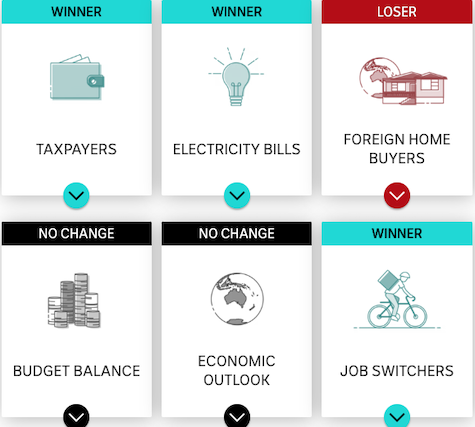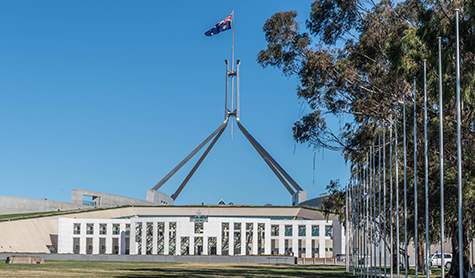Low interest rates require a strategic rethink
In an era of lower-for-longer interest rates and investment returns, retirees in particular should be thinking beyond just income generation to fund their lifestyle spending.

Australian interest rates aren't likely to be rising in the near future.
That was the continued message from the Reserve Bank of Australia this month when it announced it was keeping the official cash rate at a record low 0.1 per cent for the tenth month in a row.
The RBA says it won't increase the rate until actual inflation is sustainably within its target range, and it doesn't expect this will be met before 2024.
It's good news for borrowers. But ultra-low interest rates are an ongoing problem for people relying on income streams from assets that typically generate low returns, such as cash and bonds.
So is the rising cost of living expenses. Australia's rate of inflation spiked to 3.8 per cent in the year to June, while the Pensioner and Beneficiary Living Cost Index produced by the Australian Bureau of Statistics rose by 2.9 per cent.
Quarterly retirement standards data also released last month by the Association of Superannuation Funds of Australia shows that a retired single person currently needs to earn $28,514 a year to live a “modest lifestyle” and afford basic activities. A couple needs to earn $41,170.
To live a “comfortable lifestyle”, enabling a broad range of activities including travel and the purchase of discretionary items, ASFA estimates a single person needs to earn $44,818 and a couple $63,352.
Yet, reaching these annual income figures from personal retirement savings has now become a lot harder.
Bank term deposit accounts are paying returns of less than 2 per cent, even on money locked away for three to five-year deposit terms.
So, where else can people generate regular higher income streams?
Record company dividends were declared from the latest earnings reporting season for the period ended 30 June 2021.
They'll start flowing shortly to direct company shareholders and investors with indirect equity exposures through exchange traded funds (ETFs) and managed funds.
But even company dividend payments can't always be relied upon. Last year, in response to COVID-19, many of Australia's biggest companies cut or suspended their dividends to offset losses arising from the pandemic.
Rethinking retirement spending
In an era of lower-for-longer interest rates and investment returns, retirees in particular should be thinking beyond just income generation to fund their lifestyle spending.
In essence, that should involve using the “total return” from an investment portfolio to help fund living expenses.
What's the total return? The total return includes both the growth in an investment's value (the capital return) and the income it generates along the way.
In other words, a total return strategy incorporates using both capital and income returns.
How does such a strategy work in practice?
The first step is to assess your broad retirement goals and tolerance for risk, and to then allocate available savings within an investment portfolio in a way that can support your spending requirements on a sustainable basis.
Swings and roundabouts
In retirement, taking a long-term approach to one's investment strategy and lifestyle needs, and setting a sustainable spending rate, is just as important as it is before retirement.
Capital growth and income returns, as seen after the extreme volatility on global share markets in 2020, are unpredictable over the short term. Market returns go up and down.
During times when income returns do fall below your spending needs, a total return strategy involves spending some of the capital value of your portfolio to make up the shortfall.
In a practical sense, this would involve selling a portion of “liquid” assets such as shares, exchange-traded funds (ETFs) or managed funds.
The whole idea is to be able to sustain your spending needs, which means having enough liquidity in your portfolio so you can sell some of your assets if you need to.
As long as the total return drawn down doesn't exceed your sustainable spending rate over the long term, this approach can smooth out income gaps during periods when investment returns are more volatile or negative.
Equally, when investment returns are stronger, this strategy involves maintaining your spending levels (or even reducing them) and reinvesting higher income returns to rebuild the capital value of your portfolio.
The benefits of leveraging total returns
A total return investment approach is all about establishing realistic spending goals and using your capital and income returns to achieve them.
Spending adjustments will invariably need to be made along the way, to account for years when you need more money – such as to take a holiday, do house renovations or repairs, or to buy household or personal items.
In other years, it may be possible to reduce spending and use capital and income growth to boost your portfolio so you have more of a buffer for times when investment returns are poor.
The best approach to building an investment portfolio is to apportion funds across different asset classes, such as shares, bonds, property, infrastructure, and cash.
Having a diversified portfolio will offset the risks of being too exposed to one asset class.
Asset classes perform differently from year to year, but historical data going back for decades shows that despite inevitable short-term price dips, over the long term you can expect each asset class will deliver strong growth.
Tony Kaye
14 Sep, 2021
vanguard.com.au























